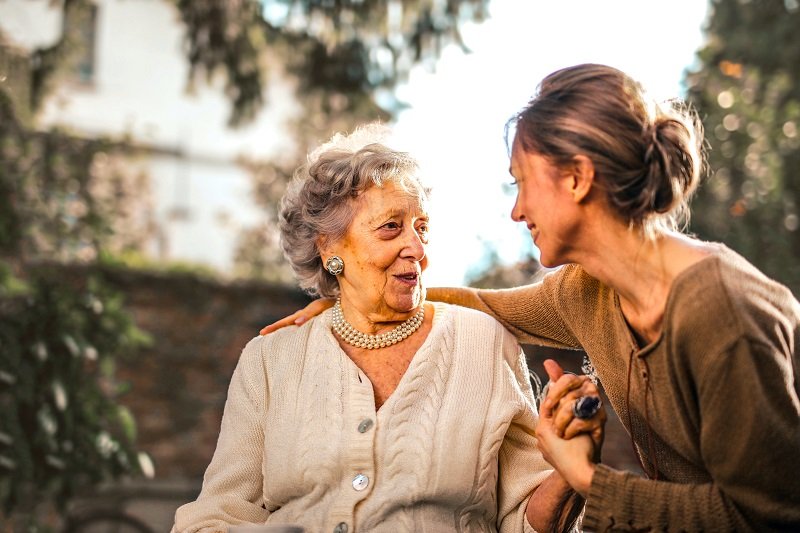6 Healthy Habits to Help You Make Big Changes in Later Life

Last Updated on July 14, 2025 by Rose Ann
Contrary to the myth that seniors can’t adopt new habits, neuroscience reveals your lifetime of experience is actually your greatest advantage. While routines feel comforting, your brain remains remarkably adaptable at any age. This article debunks the “too late” myth with six evidence-backed habits that leverage your hard-earned wisdom for sustainable change.
You’ll discover:
- The neuroplasticity advantage that makes your brain uniquely receptive to positive change
- How “wisdom-guided micro-habits” overcome willpower limitations
- Why experience-based strategies succeed where youthful efforts fail
- Science-backed timelines for habit formation in later life
- The virtuous cycle where small changes create disproportionate benefits
Recent Johns Hopkins research shows seniors who apply life wisdom to habit formation have 63% higher success rates than younger adults. Your journey starts here.

Why Learning New Healthy Habits Can Seem Impossible?
Adopting a new healthy habit as we age can often feel like a daunting, if not impossible, task. Often, we make bold promises to ourselves: We will start exercising. We will eat better. We will learn to relax. We will lose weight. But we rarely take the measures needed to prepare ourselves for success.
Developing new habits takes time and patience. It is unrealistic to expect instant transformation. Change is a gradual process that requires consistent effort and determination. One key factor in successfully adopting new habits is setting realistic goals.
Prefer to listen rather than read?
Rather than aiming for drastic changes all at once, it is more effective to start small and gradually build upon those changes over time. For example, instead of trying to completely overhaul your diet in one day, you could start by incorporating more fruits and vegetables into your meals each week.
Additionally, it is important to acknowledge that setbacks are a normal part of the process. It is natural to slip up occasionally or struggle with maintaining new habits. The key is to not let these setbacks discourage you but rather to learn from them and use them as motivation to continue moving forward.
Moreover, our stress reactivity and coping mechanisms evolve. Older individuals might experience increased anxiety sensitivity, which can exacerbate fears about new or unfamiliar activities. This heightened sensitivity can discourage the adoption of new habits, particularly those that involve physical activity or diet changes, due to misconceptions about their potential negative effects.

6 Healthy Habits to Help You Achieve Higher Goals in Your Senior Years
Fogg suggests starting with small changes in outlook and attitude that do not necessarily entail a huge commitment like that which going to the gym or cutting down on your favourite sweets might entail.
Big changes can be overwhelming. Starting small with healthy habits that are easier for you to learn will allow you to make gradual adjustments. Gradual, measured changes are easier to manage and embrace over time.
These small victories –which often involve easy changes in attitude – give you a chance to test the viability and feasibility of your plans without diving in headfirst. This way, you can assess the impact of your bigger goals and make adjustments as you go along.
Below is a list of small, healthy habits that can start you on your way to big changes in your later years.
Cultivate Gratitude
The first item on your list of healthy habits should be a pledge to cultivate gratitude. This will help you to keep an optimistic attitude toward the challenges of later life. A grateful attitude toward life promotes resilience and a more positive perspective.
Expressing your gratitude and appreciation for friends, family, and caregivers helps you form stronger social connections. Openly acknowledging and appreciating the support you receive from the people in your life can bring immense joy and fulfilment.
Research has shown that individuals who practice gratitude tend to adopt healthier behaviours in their daily lives. By expressing gratitude and appreciating the positive aspects of their lives, these individuals are more likely to engage in activities that promote their overall well-being.
For example, grateful individuals are more inclined to exercise regularly, eat a balanced diet, get an adequate amount of sleep, and practice mindfulness. These healthy habits not only contribute to better physical health but also have a positive impact on mental and emotional well-being.
Furthermore, studies have found that individuals who cultivate a sense of gratitude are more resilient in the face of challenges and adversity. By focusing on the things they are thankful for, these individuals are better able to cope with stress and maintain a positive outlook on life.
This resilience can help protect against mental health issues such as depression and anxiety. In addition to the benefits for physical and mental health, cultivating gratitude can also improve relationships with others. Grateful individuals are more likely to express appreciation towards others, which can strengthen social bonds and foster a sense of community.
By showing gratitude towards friends, family, and colleagues, individuals can create a supportive network that enhances their overall well-being. By adopting a grateful mindset and incorporating healthy habits, individuals can experience improved physical health, mental well-being, and stronger relationships.
Maintaining good health is crucial among older people, and gratitude can motivate you to prioritize your well-being. So, why not take a moment each day to reflect on the things you are grateful for and see how it can transform your life for the better.

Practice Reminiscing for Wellness
We have all felt that stab of nostalgia, that sweet, tender aching, that happens when something –a smell or a sound, perhaps – brings back a flood of memories that up until that moment, you had all but completely forgotten.
You may be driving by the old neighbourhood or your old high school when an unexpected cascade of images pounces on you: some long-gone friend’s smiling face; a tree that stood in front of the house in which you grew up; the garden in the backyard.
The brain circuit that kept that memory in your mind hadn’t fired in decades, and it might never have been activated were it not for that particular sound or smell – that trigger.
These recollections can summon emotions that have a positive impact on your mood and overall well-being, say psychologists. They can lower blood pressure, relieve stress, and reduce anxiety and depression – all of which are bigger goals that the simple act of reminiscing might help you achieve.
That dynamic, in a nutshell, is the basis of reminiscence therapy. It is something many of us do every day without even knowing it. Make a healthy habit of listening to music, movies, or food from your past. Surround yourself with mementos from your youth – old trophies, photos, and trinkets.
Relish the happy memories that come flooding back with these prompts. That should be easy enough to do and you probably do it, anyway, when you watch old films or listen to music.
You can even take it a step further and share and discuss fond experiences from the past with others. It’ll be good for you.

Nurture Self-Compassion
Do you think you’re a compassionate person? Do you feel empathy for people who suffer from serious health and mental difficulties? Self-compassion is about turning that same instinct to serve you, as well.
This healthy habit involves being gentle and understanding towards oneself rather than harshly self-criticism, as many of us can at times be. It’s about acknowledging mistakes or shortcomings with empathy and recognizing that imperfections are part of being human.
Recognizing that personal struggles and challenges are part of the shared human experience is crucial to your well-being, especially as you age. Understanding that everyone faces difficulties at some point helps you to feel less isolated or inadequate in times of struggle.
Make a healthy habit of being kind to yourself. Self-compassion isn’t about self-indulgence or avoiding personal responsibility. Instead, it’s about offering oneself the same care and support that one would readily extend to others. That shouldn’t be hard for anyone to do.

Learn Eco-Friendly Living
Who doesn’t want cleaner air, lower energy bills, and a healthier environment? Seniors have a unique perspective on the long-term effects of environmental degradation.
By making a healthy habit of eco-friendly measures such as recycling and reducing energy consumption, you can contribute to preserving the planet for future generations. This does not require much. You can start by separating your rubbish accordingly. Then you can graduate to cutting down on your use of energy.
You don’t have to rush into it, too. You don’t need to go to the Amazon to preserve the world’s biodiversity. Keep to a pace that comes easy and natural to you. From there, you can gradually build a healthy habit of a lifestyle that promotes a greener, cleaner environment for your grandchildren and loved ones.

Cleaner air and water resulting from eco-friendly practices can directly benefit seniors’ health. Reduced pollution can lead to fewer respiratory issues and better overall well-being among older people.
Healthy habits such as using energy-efficient bulbs and appliances, or conserving water can result in cost savings. You’ll see a reduction in the cost of your energy consumption as soon as your next bill arrives.
Even the smallest reductions in energy costs can make a significant difference over time. This will help to improve your financial stability, which is yet another bigger goal that is often difficult to accomplish.
Seniors often hold influential roles in families and communities, too. By practising eco-friendly habits, you set an excellent example for younger generations, instilling them with a sense of environmental responsibility.
Embrace a Positive Attitude
Embracing change and gradually learning to adapt are crucial for maintaining a positive outlook, especially in life’s unpredictable moments. Making a healthy habit of at least trying to assume a positive mindset can help you navigate the challenges of later life with greater ease.
This allows for a more open attitude towards learning from mistakes, exploring desires, and recognizing new possibilities. Conversely, when change is met with inflexibility or fear, it often leads to stress and strain, leaving one feeling overwhelmed and more prone to feelings of failure or even hopelessness.
These emotions become heavy burdens over time. They may even become overwhelming, which could make you susceptible to a sense of inadequacy or despondency.
So, be a glass-half-full person. Be positive.

Keep Your Doctor’s Appointments and Scheduled Health Screenings
We all know that consistent visits to the doctor are essential to the maintenance of good health. We are all equally aware that it can sometimes be difficult to stick to checkup and screening schedules.
Many avoid it. Others simply feel they don’t have time. Even so, as we age, our bodies become more vulnerable to various illnesses. This makes regular checkups and health screenings crucial.
Making a healthy habit of keeping to your appointments with the doctor should be easy. You’re going to have to see your doctor, anyway, at some point or another. Why not learn to make a healthy habit of it?
This is especially important for older people who deal with underlying health conditions. Your visits and health screenings allow doctors to closely monitor any existing health issues.
This ensures proper management and the necessary treatments and medications to support your overall well-being. Regular health checkups also aid in identifying early signs of diseases or changes in health patterns, allowing for timely intervention.
This should not be difficult for you. After all, you could not have reached the age of seniority if you didn’t know how to take care of yourself.

Learning to Take Baby Steps Toward Giant Changes in Your Senior Years
While the journey towards a healthy life may not always be easy, it is certainly worth the effort. Remember that progress is not always linear, and setbacks are a natural part of any transformation. Embrace the challenges as opportunities for growth and learning, and be gentle with yourself along the way.
Despite our best intentions, we gain weight, we don’t exercise or eat well, we fail to take our medications on time, and stress and sleeplessness often dominate our lives.
But none of this is inevitable in your senior years, either. Your success or failure in learning healthy habits involves the right mindset and approach.
By taking consistent, well-known, and rational steps toward living a healthy life, you can create a foundation for long-term contentment and well-being. Stay focused on your goals, stay resilient in the face of obstacles, and trust in the process. You have the power to shape your future and create a life filled with health, happiness, and fulfillment.
Choosing which habits to adjust and, more importantly, understanding what comes easy and natural to you can help you establish healthy habits that endure and allow you to achieve higher goals in your golden years. What do you think?
Frequently Asked Questions About Healthy Habis in Your Golden Years
- Is it really safe to start a new exercise routine at my age?
- Absolutely! The key is starting gradually and listening to your body. Most mature adults can safely begin a gentle exercise program without medical clearance, but it’s always wise to discuss your plans with your healthcare provider, especially if you have existing health conditions. Start with low-impact activities like walking or chair exercises, and gradually increase intensity as you feel comfortable.
- I’ve never been good at cooking healthy meals. Where should I start?
- Start simple! Focus on adding rather than subtracting — add a piece of fruit to breakfast, include a vegetable with lunch, or try a new healthy snack. Many grocery stores offer pre-cut vegetables and simple meal kits that can make healthy eating more manageable. Consider taking a basic cooking class or watching online tutorials for techniques that interest you.
- What if I don’t have family nearby or struggle to make new friends?
- Many mature adults face this challenge, and there are numerous ways to build meaningful connections. Look into community centers, religious organizations, volunteer opportunities, or hobby-based groups. Libraries often host book clubs and other social activities. Online communities can also provide valuable connections, especially for people with mobility limitations.
- How much sleep do I actually need at my age?
- Most mature adults need 7-8 hours of sleep per night, though some do well with slightly less. Quality matters more than quantity—if you’re waking up feeling refreshed and alert during the day, you’re probably getting enough sleep. If you’re consistently tired despite spending adequate time in bed, consider discussing sleep quality with your healthcare provider.
- I have limited mobility due to arthritis. Can these habits still work for me?
- Absolutely! Every habit can be adapted to work with your current abilities. Chair exercises, water aerobics, and gentle stretching can provide movement benefits. Focus on anti-inflammatory foods for nutrition. Many stress-reduction techniques require no physical movement at all. The key is working with your abilities rather than against your limitations.
- How long before I start seeing results from these changes?
- You might notice some benefits immediately—better mood from social connections, improved sleep from stress reduction techniques, or increased energy from better nutrition. More significant changes typically become apparent within 2-4 weeks of consistent practice. Remember, the goal is long-term health and happiness, not quick fixes.
- What if I try these habits and don’t see the results I’m hoping for?
- Results can vary based on individual factors, and sometimes it takes time to find the right approach for your unique situation. Consider working with healthcare professionals like a registered dietitian, physical therapist, or counselor who specialize in working with mature adults. They can help you customize these habits to work better for your specific needs and circumstances.
REFERENCES
- World Health Organization. (2024, October 1). Ageing and health. WHO Fact Sheets.
- U.S. Department of Health and Human Services. (2024). Healthy People 2030 and Older Adults. Office of Disease Prevention and Health Promotion.
- Centers for Disease Control and Prevention. (2024, September 19). Healthy Aging at Any Age. CDC Healthy Aging.
- International Journal of Behavioral Nutrition and Physical Activity. Impact of physical activity programs and services for older adults: a rapid review.
- The Journal of Nutrition, Health & Aging. International Exercise Recommendations in Older Adults (ICFSR): Expert Consensus Guidelines.
Disclaimer
The content provided on MySeniors.World is for informational purposes only and is not intended as either financial or medical advice. Always consult a qualified professional before making any investment or health-related decisions.
Posts may contain affiliate links, meaning we earn a commission – at no additional cost to you, if you click through and make a purchase. Your support helps us continue providing valuable content.





